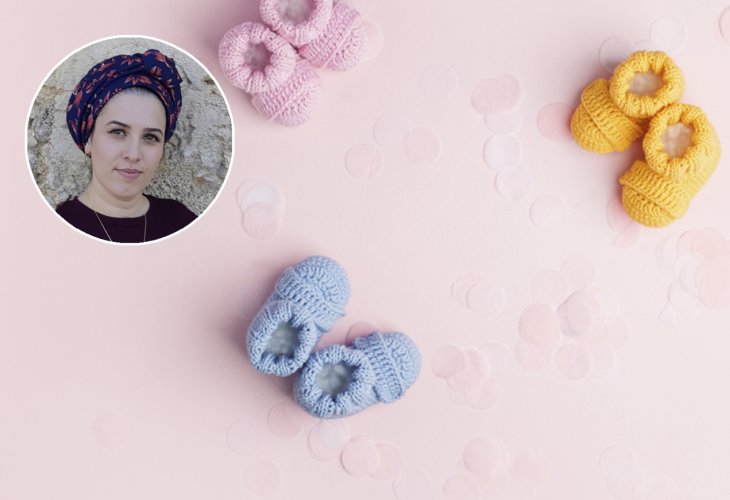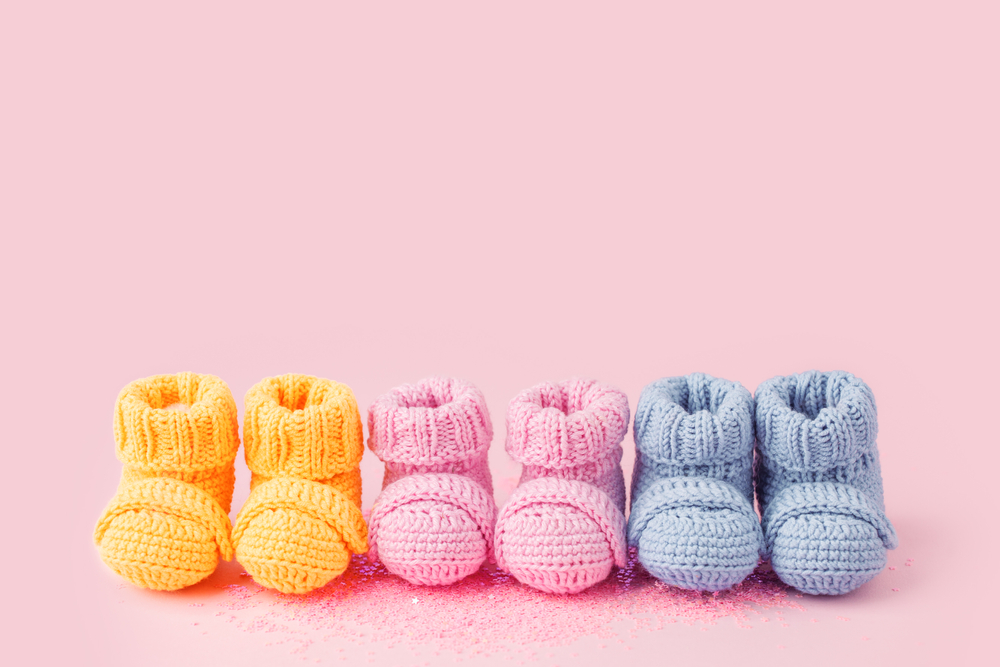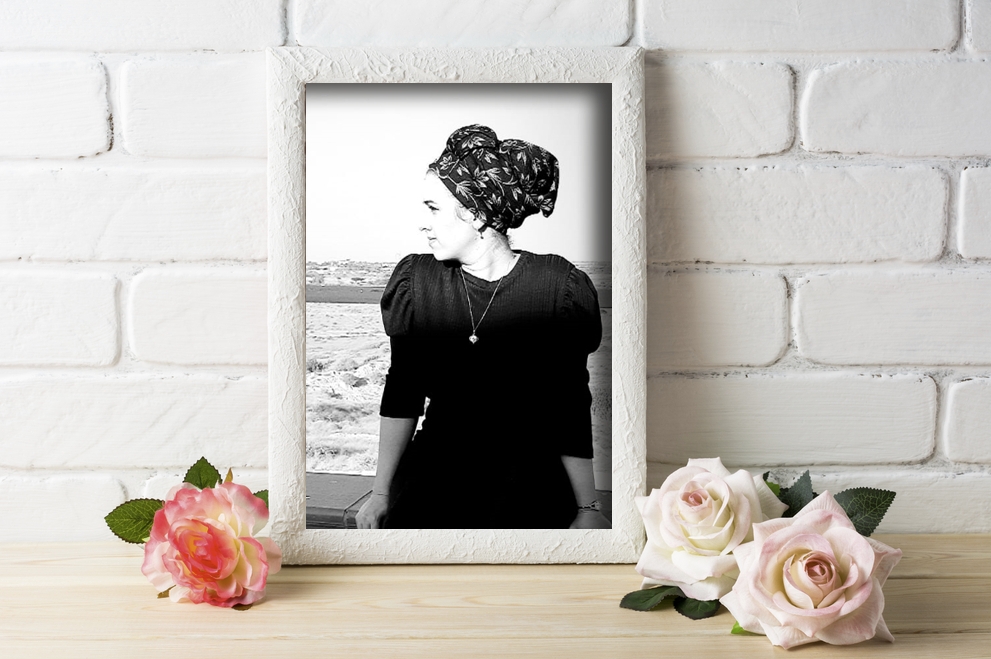The Mother Who Lost Triplets: 'I Said Goodbye to My Three Children with a Broken Heart, Yet Full of Hope'
Ahuva Or gave birth to her triplets in the 24th week. Sadly, their condition deteriorated, and the infants passed away. Today, she shares her story to inspire others: "Never give up."
 (In the circle: Ahuva Or Bukovza)
(In the circle: Ahuva Or Bukovza)Ahuva Or Bukovza's story is a sorrowful tale, yet it's filled with light and hope. Only 26 years old, she has endured hardships that many may never face in a lifetime. Yet, she maintains an inspiring sweetness and optimism, strengthening her connection with Hashem each day.
It happened just two years ago. After fertility treatments, she became pregnant with triplets, bringing immense joy, but trouble began after she delivered at week 24. "It was before Purim," she recalls. "I don't remember the precise timing because I was still dazed from the birth, but roughly a day later, the first daughter passed away due to organ failure. The son died two weeks later, also due to organ failure, and the last daughter was a true fighter. We even named her Esther," she recounts.
Unfortunately, after a month in the NICU, little Esther also began to show signs of deterioration, and when her condition didn’t improve despite treatments, she too passed away. Ahuva parted from her three children with a broken heart, as she herself was still recovering from a C-section, and the pain was unbearable. Yet, she does not sink into despair and continues to live with hope for another pregnancy with a better outcome, with Hashem's help.
"They Said We Were Too Young to Marry"
Born in Bat Yam, at the age of 8, her parents moved to Kibbutz Nirim in Gaza’s envelope. Ahuva found it very difficult to adapt to her new environment. "My parents moved to the kibbutz following friends who relocated there. They thought living on a kibbutz would be wonderful. I found it more challenging. When someone from outside arrives and doesn't dress or behave like other kibbutz kids, it's hard to accept them. I had one good friend, and we’re still in touch today. Without her, I don't know how I would have survived that time. Despite our close friendship, I still couldn’t quite feel a sense of belonging. Whenever things were tough, I remember sitting on a concrete shelter near the playground, looking at the stars and talking. I didn’t know with whom or what, I didn’t know Hashem back then."
In high school, things began to change. New students joined from the nearby city of Ofakim, with whom Ahuva felt much more comfortable, perhaps because she had an urban soul. She began spending Shabbat with her new friends and discovered the beauty of Judaism. "Even back in Bat Yam, I remember going to the synagogue, where everything was white. I have a vivid memory etched in my mind from there. My aunt also became religious and ran an observant home, so I had some understanding of a religious lifestyle, but only in Ofakim did I see the beauty of the Kiddush and the charm of not traveling on Shabbat. We also had a Friday night meal at home, but without the content. Eating on Friday night was the same as on any regular night, and the absence of meaning was very noticeable. I sought something to fill me, I sought myself. At 14, we used to go to parties but returned home feeling empty. I couldn’t find what I was looking for."
You started searching for meaning at just 14? A relatively young age.
"That's right, but that’s how I was. I wasn’t interested in post-army trips. I was looking for myself."
At just 16, Ahuva met her future husband through a mutual friend. He lived in Beersheba, and soon after, at only 18, they decided to marry. "The family didn’t take it well. We were very young, and they said we wouldn’t make it. They were worried that I’d stop living after marriage and not continue my studies. But for us, the natural state was either to marry or part ways. We married post-army, and since then, I’ve managed to turn worlds and to this day don’t understand why they thought marriage would hold back my life."
"The CT Showed a Brain Tumor"
The young couple gradually strengthened their shared faith. They attended weekly lessons from the neighborhood rabbi and began observing mitzvot. Meanwhile, Ahuva enrolled in a degree in architectural engineering and interior design, which she completed successfully three years ago, currently working in the field as an independent contractor.
About six months into her studies, her husband suddenly fainted and suffered a severe head injury. They went to the emergency room, where they unexpectedly received worrying news. "The doctors decided to perform a CT scan as a precaution because of the head injury. During the scan, they found a benign tumor. The tumor wasn’t dangerous, and the surgery could be postponed, but after consulting with Rav Firer, we decided it was best to remove it. After all, it’s a brain tumor. He underwent the surgery, and thank Hashem, everything is fine, but he had to go through a rehabilitation period, during which everything was more challenging. After completing rehab, we hoped to expand the family."
Before long, they realized they could not conceive naturally. Ahuva began a series of challenging treatments and tests, but they had no doubt that the path was worth it for the desired outcome.
How did you get through that period?
"It was a very difficult time. Almost every morning I had to do blood tests, ultrasounds, to check for any progress. I’m not saying it’s easy, hormones can drive you crazy, and you get upset over every little thing, but the outcome is worth it."
After a period of treatments, Ahuva became pregnant and found out she was expecting triplets. "It was a shock, three children in the first pregnancy, wow. The doctors suggested reduction, but I didn’t want to because I had waited so long. And also – who am I to decide to remove one of the fetuses?! If this is what I received, then it's likely what I was meant to get. After all, you’re not given anything you can’t handle. I told the doctors I wanted to consult a rabbi, and that’s what I did. He said that if there’s no risk to the fetuses or the mother, there’s no justified reason for reduction. Some triplets are born healthy. Indeed, all the checks during the pregnancy were normal and even beyond expectations. I was sent for more and more tests to ensure everything was okay. I did all the tests I was referred to."
 (Photo: shutterstock)
(Photo: shutterstock)During the pregnancy, the fetal developments were normal, but when Ahuva underwent a late anatomy scan, she started feeling slight stomach pains. At the time, she was on pregnancy bed rest and attributed no importance to the pain since she always felt the triplets kicking. She never imagined it was actually labor. "At week 24, we went to the hospital, where doctors informed me I was in labor. I was given a steroid shot to mature their lungs, and within four hours of arriving, I was already in a C-section."
At that point, did you start to worry? After all, it was premature labor.
"The surgery was successful, and we thought we just need to wait for them to grow, develop, and be nurtured in the NICU’s intensive care. I knew it was a very early week, but they were all born healthy, breathing though not on their own, but breathing, and we hoped for the best."
Righteous Souls
The following weeks are hazy for Ahuva, who was recovering from the surgery, relying mainly on what her husband told her. "A day after birth, the first daughter began showing adverse signs of organ failure and passed. Four days later, I was discharged from the hospital. On Shabbat a week later, we received a call saying our son’s condition was deteriorating and that we should come. Upon arrival, we were informed he had already passed away."
Stricken with grief, the couple decided to fight for their surviving daughter’s life and even named her Esther. "She was a true fighter. There were ups and downs, but she managed to breathe on her own without ventilation for half an hour, which was a huge excitement. We asked rabbinical prayers for her, donated to charity, did everything for her to hold on. We were optimistic, but one day she developed a fever, and it turned out she had a blood infection. They didn’t know what caused it, but she didn’t have the immune system to fight it, and a few days later, she passed."
This stage of the conversation became more complex. Two years have passed since, but the pain remains unbearable. Ahuva tries to explain that after the tragedy, she and her husband also had to handle funerals and death certificates and requested the hospital not perform an autopsy. All the necessary bureaucracies are so difficult to navigate after such a significant loss. But Ahuva and her husband looked for ways to rise above it and continued to listen to lectures, read books, and strengthen their faith in Hashem together. "We tried not to overthink the loss," she explains. "I remember reading that children who die before the age of mitzvot have righteous souls, and that’s what strengthened me at that time. My husband always told me they’d be waiting for us after 120. Two years have passed, and I felt I needed to focus on what makes me happy, because if you don’t do what you love, everything is unbearable."
Thus, from the crisis, Ahuva decided to start a new business in architecture and interior design just a month ago, during the coronavirus crisis. "I felt I had reached the end of my growth at work, and everything became a repetitive routine. Nothing was new. I wanted to open my own business, also because there’s no boss over my head. When I go through treatments again, I can do it without concerns."

Her personal story, which she rarely spoke of till now, was revealed following a course with an architect. "We talked about consciousness and how our past holds us back, and I can attest to the truth in that. I prevented myself from opening up to people to avoid reaching this story. People always ask if we have kids if we plan to have kids or are undergoing treatments, and other things that are none of their business. Today, with this story out and everyone knowing it, I don't care what they’ll say about me. The pregnancy will come when it comes, and it’s unrelated to anyone else. It opened many doors for me, and today I realize many things about myself I never knew before."
What amazes me is that you managed to strengthen your faith instead of the opposite. How did you do that?
"My husband and I encouraged each other. When I faltered, he strengthened me, and vice versa. If both of us felt down, we listened to rabbinical lectures and were uplifted. Once you’ve tasted Judaism, you can't go back because you know that’s where the truth lies. When I was in the NICU, a social worker asked how I was coping, and I told her I was fine; if I have to be here, I'll be here. She responded with commendations on the faithful religious people who manage to handle any situation better.
Why did you decide to reveal this story now?
"Today, I’m two years past it, feeling strong, and want to inspire other women. I want to share my story to let people know never to give up. Even when it seems impossible to get out of the tough situation – everything is possible!"
Please pray for Ahuva Or bat Shoshana, that she may be blessed with children, an easy birth, and healthy, righteous kids.

